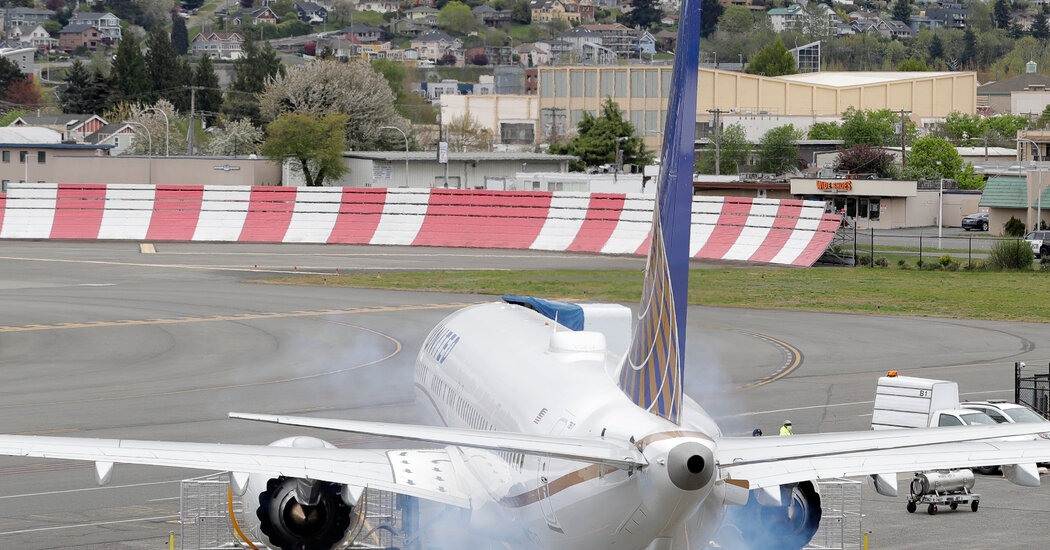

When asked for comment, both the E.P.A. and Department of Energy referred questions to the White House, which did not respond.
The concerns underscore the difficulty of cleaning up an industry that has come under increasing pressure to tackle its emissions. Aviation currently makes up about 3 to 4 percent of total U.S. greenhouse gas emissions — it’s by far the most energy-intensive way to travel — and while planes have become more efficient, growing demand for flights has outpaced those advancements.
Lauren Riley, managing director of global environmental affairs and sustainability at United Airlines, said that the airline was looking to a more promising source of sustainable fuel: forest waste, like fallen branches, or leaves and stalks left over from growing crops. On Thursday, the airline, together with the industrial giant Honeywell, announced a joint multimillion-dollar investment in a company that is developing a way to produce aviation fuel from forest and crop waste at scale.
“It’s a really exciting time for aviation,” Ms. Riley said in an interview. She added that though she thought the target set by the Biden administration was ambitious, “we have an absolute chance of realizing or even exceeding” those goals. A full accounting of the environmental effects of using forest or crop waste is forthcoming, however..
Concerns like these highlight how the E.P.A. needs to oversee the development of sustainable fuels to ensure that airlines use fuels with low emissions, experts say. Companies are working on another promising group of fuels, called electrofuels, which are produced from a combination of hydrogen generated from renewable electricity and captured carbon.
And to ensure that airlines take up these low-emissions biofuels, which are likely to be more costly than jet fuel for the time being, the government needs to set mandates, not voluntary targets, experts say. The European Union is currently moving forward with a sustainable fuel mandate for planes, paired with strict restrictions on the kinds of biofuels that the industry should use.
But even improvements in fuel efficiency are unlikely to offset the growth in air travel. Environmental groups have called on governments to require that airlines disclose emissions estimates for individual flights, so that consumers can make a more informed choice about which airlines to fly or what flights to take. Others have called for an end to frequent flier programs, which they say encourage flying.
Finlay Asher, a former aircraft engine designer at Rolls-Royce who now campaigns for more aggressive climate action by the aviation industry, said that while airlines had spent years promising to lower their emissions through new technology, like more sustainable fuels, “that hasn’t happened. We need to try something else,” he said. “Really, we need to be doing less flying.”
24World Media does not take any responsibility of the information you see on this page. The content this page contains is from independent third-party content provider. If you have any concerns regarding the content, please free to write us here: contact@24worldmedia.com

Common Mistakes When Using Athletic Field Tarps

High-Performance Diesel Truck Upgrades You Should Consider

Warehouse Optimization Tips To Improve Performance

Fire Hazards in Daily Life: The Most Common Ignition Sources

Yellowstone’s Wolves: A Debate Over Their Role in the Park’s Ecosystem

Earth Day 2024: A Look at 3 Places Adapting Quickly to Fight Climate Change

Millions of Girls in Africa Will Miss HPV Shots After Merck Production Problem

This Lava Tube in Saudi Arabia Has Been a Human Refuge for 7,000 Years

Four Wild Ways to Save the Koala (That Just Might Work)

National Academy Asks Court to Strip Sackler Name From Endowment

Ways Industrial Copper Helps Energy Production

The Ins and Out of Industrial Conveyor Belts